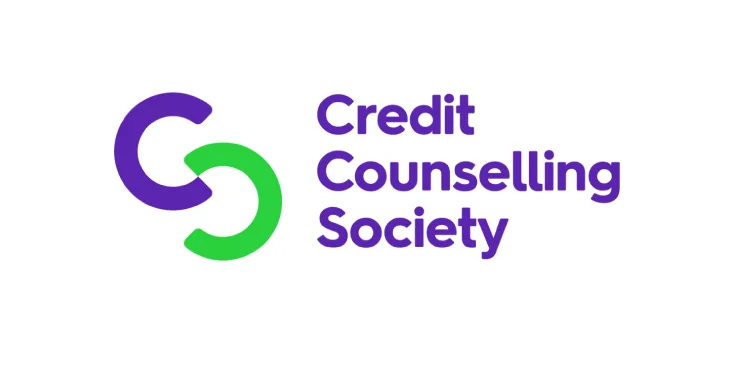
What percentage of Canadians report having either lent or borrowed more than $500 to or from friends or family?
Approaching a friend or family member for a loan is an attractive option when you need money. It can be faster, cheaper, and easier than approaching a bank. But it can also lead to problems, and even jeopardize your relationship. Learn what you’re getting into, and what to do if problems arise.
What you should know
“I borrowed $700 from my sister for some repairs to my car. She told me: ‘Pay me back the $700 when you can, and add $50 for interest.’ It’s been a couple months, and she’s pressing me for payment. Since we never put anything in writing, I don’t see why I should have to pay up now.”
– James, Vancouver, BC

You might assume a friend or family member will cut you more slack than a bank would. After all, you know each other! But be careful. When they say “Pay me back when you can,” you might hear “Pay me back if you can.” But they might mean “Pay me back next month.”
The repayment terms should be crystal-clear. Otherwise, disagreements can easily arise, leading to hard feelings, or worse.
A written loan agreement will protect both of you. See below under “Take action to protect yourself” for tips on putting your agreement in writing.
A loosey-goosey lack of formality won’t save you. An oral agreement with a friend or relative is still a contract. It’s just as legal and binding as a written contract, as long as all three elements of a contract are present.
Here are the three:
Agreement: Both parties understand and have agreed to the terms.
Consideration: Each party receives something of value in the exchange.
Intention: Both parties intend the agreement to be legally binding.
A written agreement helps prove these elements are present. Emails, texts, or notes can also help prove there’s a valid contract.
For more on these elements, see our guidance on making a contract.
For added assurance that they won’t be left high and dry, the lender can ask you for security in return for the loan. Security is a property interest you give the lender. The property is called collateral. It can be real property or personal property. Real property is land. Personal property is anything else: cars, boats, trailers, machinery, and so on.
If you give a lender a security interest in your personal property, and fail to repay the loan, the law gives the lender the right to (among other things) take the collateral, sell it, and keep the proceeds.
For example, you might give the lender a security interest in your 2010 Mazda. Here, your vehicle is the collateral. If you fail to repay the loan, the lender has the right to take the Mazda. (If the Mazda is primarily for personal or family use and you’ve repaid more than 2/3rds of the loan with them, they may lose their right to take the vehicle.)
If the lender asks for security in return for the loan, they may ask for a security agreement. This is a written assurance of your intention to grant a security interest to the lender.
A security agreement should include:
a description of the collateral
the amount of the loan being secured
a list of what constitutes default
the lender’s options if the borrower defaults
Other steps the lender may take to protect their security
A new loan can be like chum in the water to other people who you owe money. The lender may wish to protect their security interest from circling third parties. To do so, they must ensure the security agreement meets three conditions:
it includes specific descriptions of the collateral
you have signed it
it’s registered with a government registry
These steps “perfect” the lender’s security interest. A perfected security interest trumps claims by other parties to the collateral. If two parties have a security interest in the same collateral, and one interest is perfected and the other isn’t, the perfected security interest has priority. If both security interests are perfected, the first one to have perfected their interest is the one that has priority.
If you give the lender the collateral
If the borrower physically gives the lender the collateral, that also perfects the lender’s security interest. It serves a similar purpose as a security agreement. It shows the borrower’s intention to give the lender an interest in the property.
Disclose any security interests
Let the lender know if you have already given a security interest in the collateral. Earlier security interests take priority over later security interests. The lender will want to know who will be paid first.
If someone lends you money to buy real property, they can register a mortgage against that property, according to the law in BC. With a mortgage, the lender now has a security interest in your property.
By preparing a mortgage in the proper form, you and the lender are more protected than you would be with a verbal agreement. You should see a lawyer to help you prepare and file the mortgage. See our guidance on getting a mortgage for more information.
Take action to protect yourself
Does the lender expect to be paid back? This is a common point of disagreement with “friendly” loans. Both sides need to be clear on the answer from the outset. Don’t dance around the issue. A little awkwardness faced early can head off a much thornier situation later.
You may assume that because you’re not dealing with a bank, the loan will be interest-free. But that assumption is not fair to the lender. They’re taking on risk by helping you out. It’s reasonable for them to ask for interest on their loan.
How much? That’s for the two of you to decide. The rate should strike both sides as fair and reasonable. It might be lower than what a bank would charge, but high enough to allow the lender to earn more than if the money were in a bank account.
Decide how and when payments will be made.
The best options for making payments are by:
cheque
PayPal
automatic bank transfer
Make sure you keep proof of your payments. For example, save electronic receipts of payments made by bank transfer or PayPal.
Don't make promises you can't keep
When borrowing from a friend or relative, don’t promise to repay amounts you know you can’t afford. The lender shouldn’t have to chase you down about missed payments. Be realistic. Set out terms you know you can meet.
Putting your agreement in writing will protect you and the person you’re borrowing money from.
The written agreement should include:
the loan amount
the interest rate
how and when payments will be made
what happens if you miss a payment
when the full amount of the loan is due
You can use our loan agreement template.
To learn more about making an agreement, see our guidance on how to make a contract.
Work out problems
If you've borrowed money from a friend or relative and you’re struggling to repay it, be up front with them. Explain what’s going on.
"I've got a situation, but I'm hopeful we can work together to find a solution that suits us both."
Keep them updated on your financial progress.
Your relative or friend put their cash on the line for you. They deserve transparency. You may not feel you can return the money in a lump sum. In that case, see if you can work out an installment plan.
Keep the lender up to speed
If you fall behind on a loan from a friend or family member, keep the lines of communication open. If you don’t think you can live up to your agreement, let the lender know. Keep them updated on your financial situation.
If you can’t meet the terms of your agreement with the lender, let them know as soon as possible. For example, changes in your job prospects may have made sticking to the repayment schedule difficult. Explain this to the lender. They may agree to renegotiate the terms of the agreement. Or they may agree to push back the deadline to repay the loan in full.
If there is no written agreement
If you don’t have a written agreement, discuss revising the terms. You might suggest a different payment schedule that will work for you. Once both parties agree on changes, put the revised terms in writing. Sign the written agreement, and have the lender sign it.
If there is a written agreement
If you have a written agreement, check if it sets out a process for changing the terms. If not, you may choose to add an “addendum.” This is an addition to an agreement that sets out more terms and conditions. An addendum should be signed by you and the lender and attached to the original agreement.
You could also choose to revise the original agreement. Cross out the terms you no longer want. Write in the new terms, and initial beside the changes. Make sure the lender does the same. You may choose to get a third party to witness and initial the changes as well.
If you simply can’t repay a loan to a friend or relative, and can’t figure out any workaround, you can ask them to forgive the loan. In other words, to wipe the loan off the books. If you can afford to repay some of the loan, you can ask the lender to forgive the amount that you can’t pay.
Write up a forgiveness agreement with the lender. It should state the amount that is being forgiven. If the lender is only forgiving part of the debt, make sure the agreement includes:
the amount being forgiven
the amount to be repaid
the new payment schedule
Request a receipt
Ask the lender to give you a written receipt for the amount being forgiven. The receipt should have the words “Paid in Full” on it. This will help prevent any disagreements in the future.
If you break the terms of your agreement, the lender may decide to bring legal action against you.
Usually, you will first receive a demand letter from the lender. It will request payment for the amount that you owe. If you receive a demand letter, contact the lender immediately. Discuss alternatives for repayment.
A demand letter shouldn’t come as a surprise to you. That is, the lender shouldn’t claim an amount that’s greater than what they’ve agreed to accept.
If you do end up in court, judgment may be entered against you for the amount of the debt you haven’t repaid. The judge will decide if you’ve broken the terms of the agreement. With a written agreement, this should be relatively straightforward. With a verbal agreement, it may come down to whose story the judge finds more credible based on the evidence presented by the two parties.
See a legal professional
If the lender sues you for breaking the terms of your agreement, you should see a lawyer for legal advice. There are options for free legal advice.
Common questions
No. You can prepare your own. It’s better to have an agreement you’ve written out yourself than no agreement at all. You can use our loan agreement template.
The lender may agree not to charge you interest on the loan. But if a fair bit of money is changing hands, or you’re keeping the money for a long time, the lender may reasonably wish to charge interest.
The interest rate you agree on should be reasonable. Usually, it shouldn’t be higher than what a bank would charge you on a comparable loan. But, the lender may argue, it shouldn’t be lower than what they could earn just parking that money in a bank account. Make sure that you can afford to make the payments at the rate you decide on.
Let the lender know right away if you have to break the terms of your agreement. Be honest, and explain why you aren’t able to hold up your end of the deal. Perhaps your financial situation has changed because of a life event.
You have several options available to you:
Ask the lender to forgive the entire loan.
Ask the lender to forgive a portion of the loan.
Ask to revise the terms of the agreement.
For more information about each of these options, see the “Work out problems” section above.
Who can help
If you’d like more information on preparing a loan agreement, see our loan agreement template and our guidance on writing a legal contract.

Credit Counselling Society of BC
A non-profit society that helps people better manage their money and debt.

Access Pro Bono's Legal Advice Clinics
Volunteer lawyers provide 30 minutes of free legal advice to people with low or modest income.

Access Pro Bono’s Everyone Legal Clinic
Clinicians provide affordable fixed-fee services on a range of everyday legal problems.

BC Legal Referral Service
Helps you connect with a lawyer, notary or paralegal for a free 15- to 30-minute consult to see if you want to hire them.

BC Legal Directory
Search for a lawyer by community, area of law, or language spoken. From the Canadian Bar Association, BC Branch.


